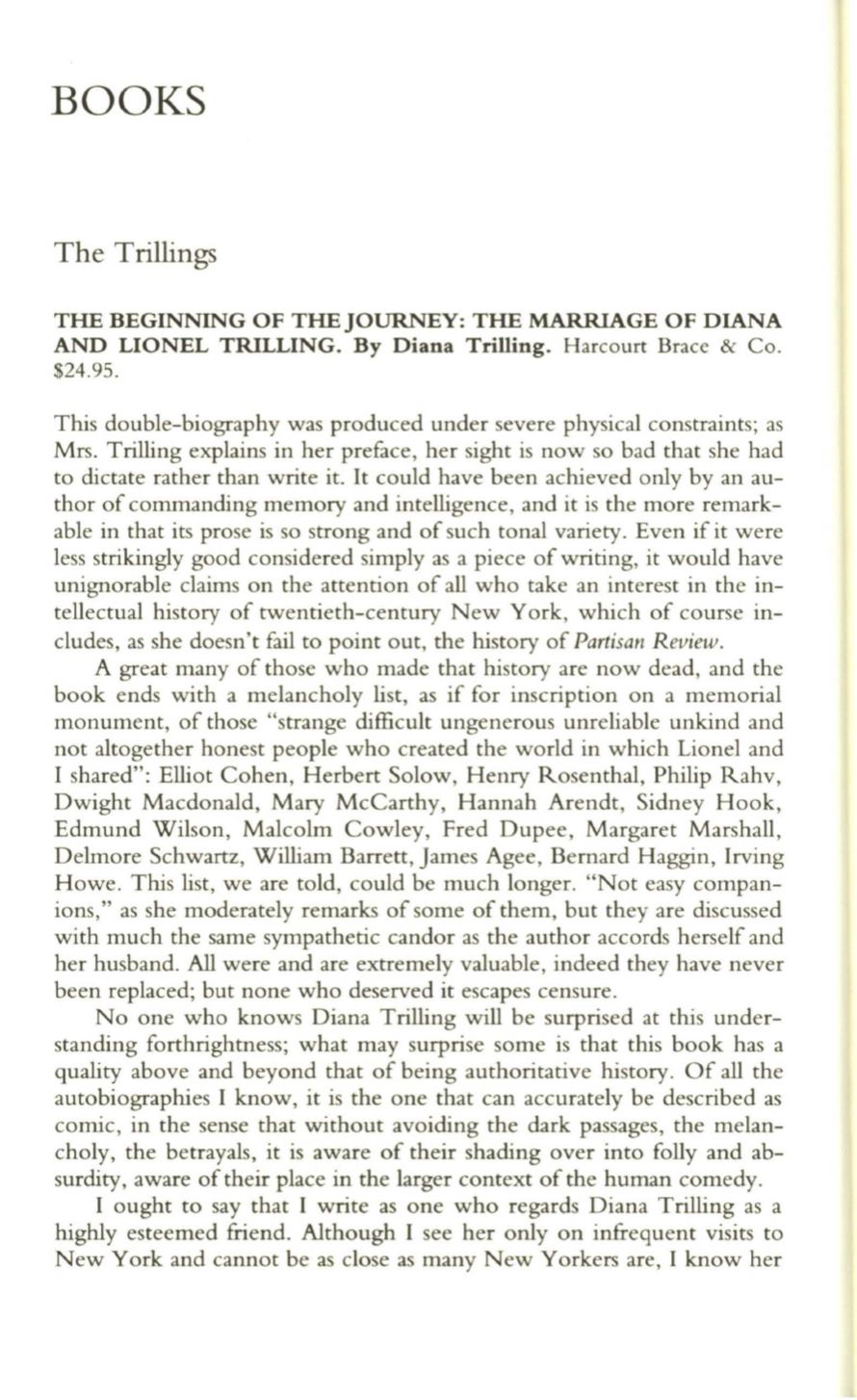
BOOKS
The Trillings
THE BEGINNING OF THE JOURNEY: THE MARRIAGE OF DIANA
AND LIONEL TRILLING. By Diana Trilling.
Harcourt Brace
&
Co.
$24.95.
This double-biography was produced under severe physical constraints; as
Mrs. Trilling explains in her preface, her sight is now so bad that she had
to dictate rather than write it.
It
could have been achieved only by an au–
thor of commanding memory and intelligence, and it is the more remark–
able in that its prose is so strong and of such tonal variety. Even if it were
less strikingly good considered simply as a piece of writing, it would have
unignorable claims on the attention of all who take an interest in the in–
tellectual history of twentieth-century New York, which of course in–
cludes, as she doesn't fail to point out, the history of
Partisan Review.
A great many of those who made that history are now dead, and the
book ends with a melancholy list, as if for inscription on a memorial
monument, of those "strange difficult ungenerous unreliable unkind and
not altogether honest people who created the world in which Lionel and
I shared": Elliot Cohen, Herbert Solow, Henry Rosenthal, Philip Rahv,
Dwight Macdonald, Mary McCarthy, Hannah Arendt, Sidney Hook,
Edmund Wilson, Malcolm Cowley, Fred Dupee, Margaret Marshall,
Delmore Schwartz, William Barrett, James Agee, Bernard Haggin, Irving
Howe. This list, we are told, could be much longer. "Not easy compan–
ions," as she moderately remarks of some of them, but they are discussed
with much the same sympathetic candor as the author accords herself and
her husband. All were and are extremely valuable, indeed they have never
been replaced; but none who deserved it escapes censure.
No one who knows Diana Trilling will be surprised at this under–
standing forthrightness; what may surprise some is that this book has a
quality above and beyond that of being authoritative history. Of all the
autobiographies I know, it is the one that can accurately be described as
comic, in the sense that without avoiding the dark passages, the melan–
choly, the betrayals, it is aware of their shading over into folly and ab–
surdity, aware of their place in the larger context of the human comedy.
I ought to say that I write as one who regards Diana Trilling as a
highly esteemed friend. Although I see her only on infrequent visits to
New York and cannot be as close as many New Yorkers are, I know her


